"O God, who didst lead thy servant St. Maurice and his companions to victory over death by the sword, grant us through their intercession the grace to follow their example of fidelity to Thee, even in the face of persecution. Amen."
ST. MAURICE AND THE THEBAN LEGION
ST. MAURICE AND THE THEBAN LEGION
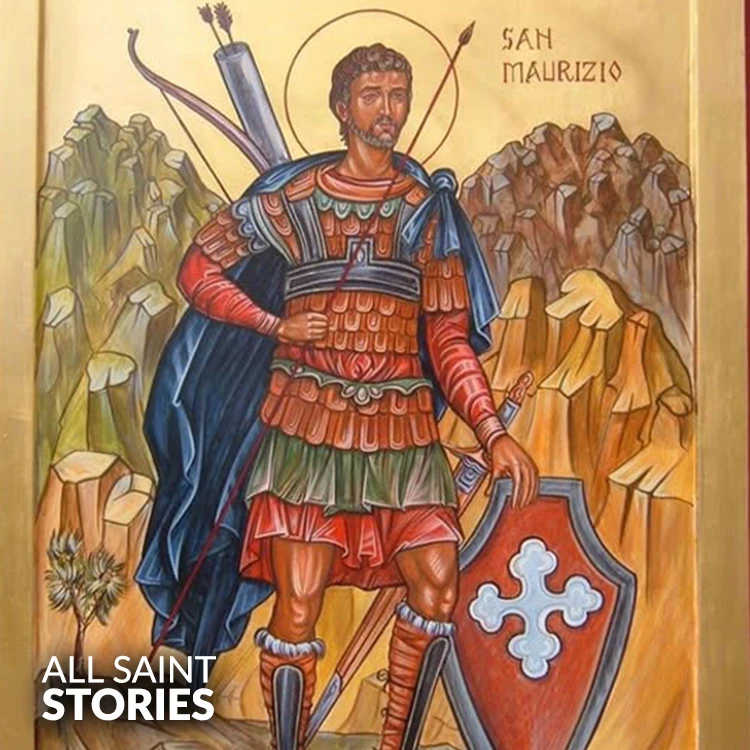
St. Maurice, leader of the Theban Legion, is remembered for his steadfast Christian faith. He and his legionnaires, all Christian soldiers, were martyred in the 3rd century for refusing to worship Roman gods. Their martyrdom is a symbol of devotion and courage, with St. Maurice particularly revered as a courageous leader. His feast day is celebrated on September 22.
St. Maurice was the leader of the Theban Legion, a group of Christian soldiers who were martyred in the early 3rd century during the reign of the Roman Emperor Maximian. The Theban Legion was primarily composed of soldiers from Thebes in Egypt, and they were stationed in Gaul (modern-day France). The legion was known for its exceptional discipline and valor.
When Emperor Maximian issued a decree demanding that all soldiers offer sacrifices to Roman gods, the Theban Legion refused, as it was against their Christian beliefs. The legion’s soldiers, led by St. Maurice, stood firm in their faith, even in the face of threats from their Roman superiors. St. Maurice, being a high-ranking officer, is often depicted as a black African soldier, a notable representation of the diverse makeup of the Roman army and early Christian communities.
The emperor, enraged by their refusal, ordered the execution of the entire legion. The soldiers were put to death in stages, with many being killed on the battlefield after they stood firm in their refusal to worship Roman deities. Some accounts suggest that the soldiers were martyred in various brutal ways, such as being executed by sword, while others were sent into battle with orders to fight without arms, knowing they would die.
St. Maurice’s martyrdom has been remembered throughout Christian history as a profound act of faith and courage. He became a symbol of resistance to tyranny and oppression, particularly in the context of religious persecution. His story is celebrated in Christian tradition, with his feast day marked on September 22 each year. His name and memory live on in various churches, monasteries, and towns, particularly in Switzerland, where the site of the massacre is believed to have occurred near the town of St. Maurice.
Over time, the Theban Legion was venerated as a group of martyrs who exemplified steadfastness in their Christian faith. St. Maurice, as their leader, became a central figure in their legacy. His leadership and unyielding commitment to Christ made him a beacon of hope for early Christians enduring persecution. He is remembered not only as a martyr but also as a model of leadership, integrity, and loyalty to faith, inspiring generations of Christians to follow his example of courage in the face of adversity.
In addition to his reputation as a leader of martyrs, St. Maurice was venerated across the Christian world. His legacy is particularly evident in churches and shrines dedicated to him, such as the Abbey of St. Maurice in Switzerland. The cult of St. Maurice was widespread in medieval Europe, and his martyrdom continued to inspire Christian communities for centuries.
Today, St. Maurice remains a symbol of Christian bravery, particularly in the context of persecution and adversity. His example has continued to inspire Christians throughout history, and his story is shared in various liturgical celebrations, as well as in sermons and teachings about faith and martyrdom.
Video Not Found
The information on this website is compiled from various trusted sources. While we aim for accuracy, some details may be incomplete or contain discrepancies.
If you notice any errors or have additional information about this saint, please use the form on the left to share your suggestions. Your input helps us improve and maintain reliable content for everyone.
All submissions are reviewed carefully, and your personal details will remain confidential. Thank you for contributing to the accuracy and value of this resource.
Credits & Acknowledgments
- Anudina Visudhar (Malayalam) – Life of Saints for Everyday
by Msgr. Thomas Moothedan, M.A., D.D. - Saint Companions for Each Day
by A. J. M. Mausolfe & J. K. Mausolfe - US Catholic (Faith in Real Life) – Informational articles
- Wikipedia – General reference content and images
- Anastpaul.com – Saint images and reflections
- Pravachaka Sabdam (Malayalam) – Saint-related content and insights
We sincerely thank these authors and platforms for their valuable contributions. If we have unintentionally missed any attribution, please notify us, and we will make the correction promptly.
If you have any suggestion about ST. MAURICE AND THE THEBAN LEGION
Your suggestion will help improve the information about this saint. Your details will not be disclosed anywhere.
© 2026 Copyright @ www.allsaintstories.com

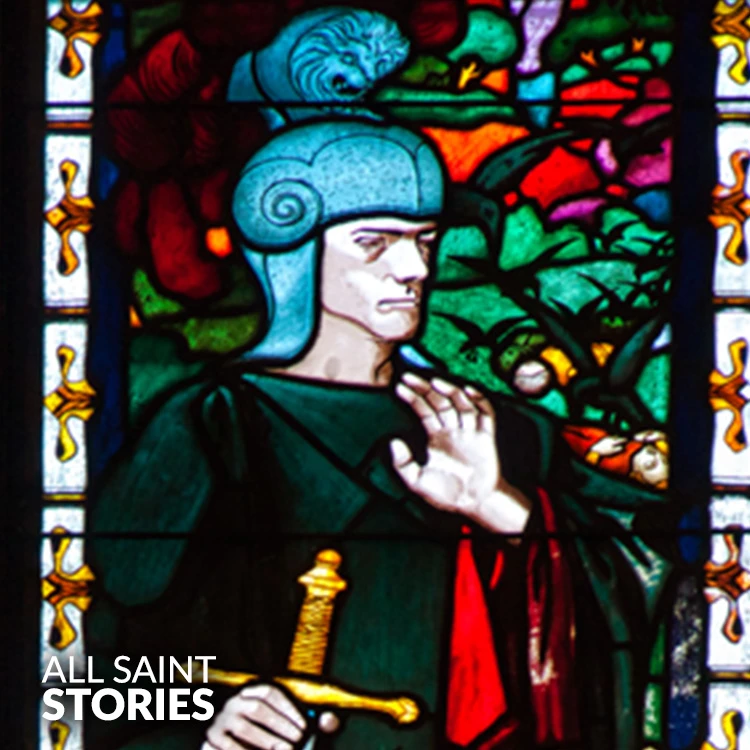
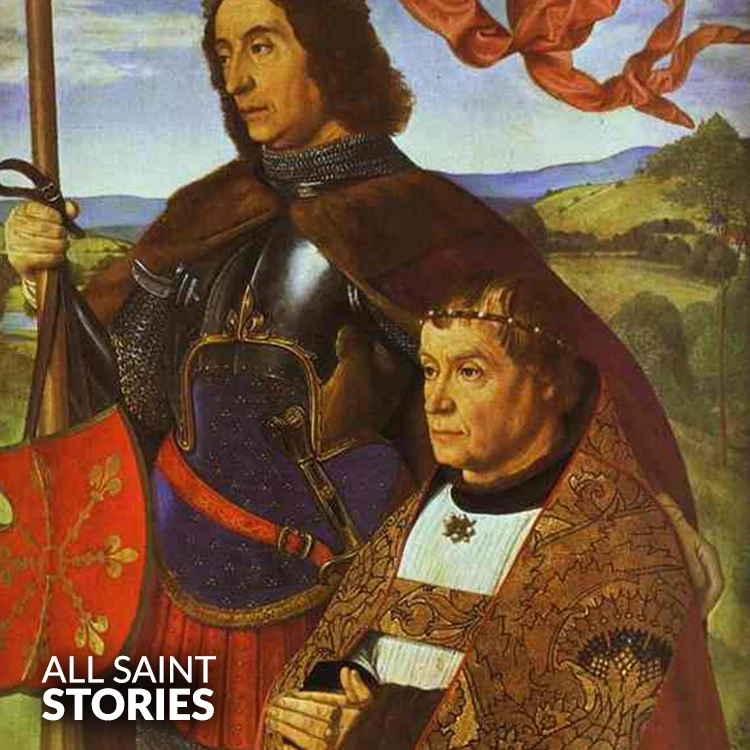
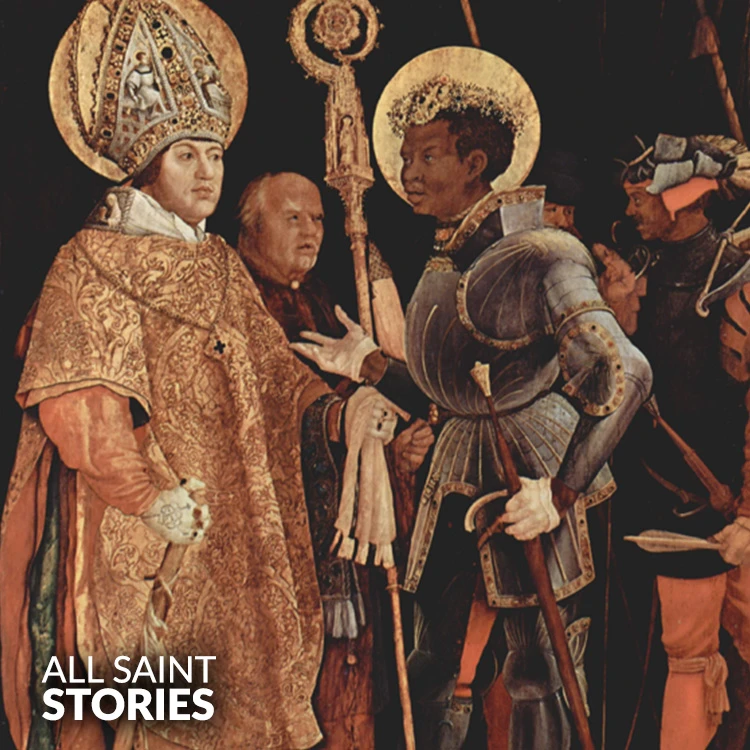
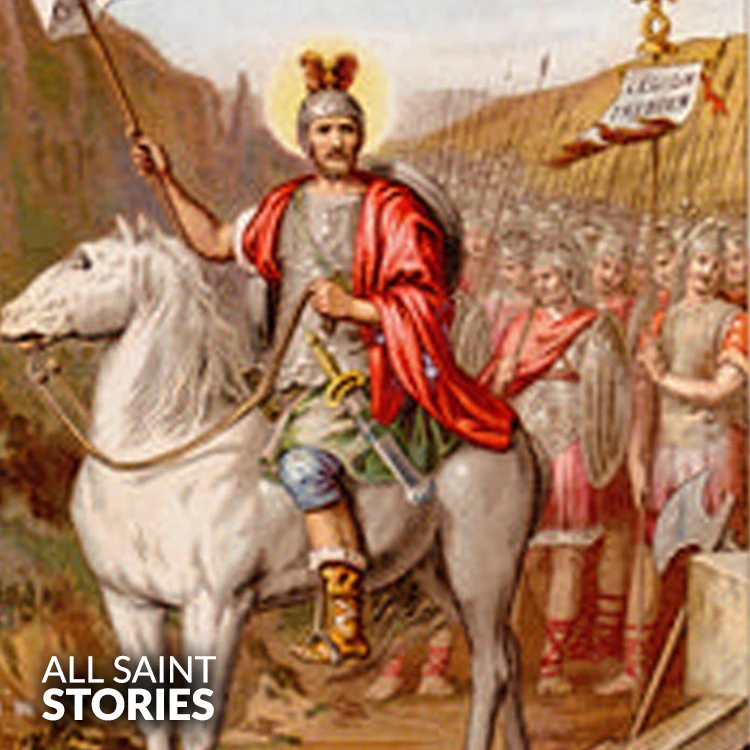

 English
English
 Italian
Italian
 French
French
 Spanish
Spanish
 Malayalam
Malayalam
 Russian
Russian
 Korean
Korean
 Sinhala
Sinhala
 Japanese
Japanese
 Arabic
Arabic
 Portuguese
Portuguese
 Bantu
Bantu
 Greek
Greek
 German
German
 Dutch
Dutch
 Filipino
Filipino